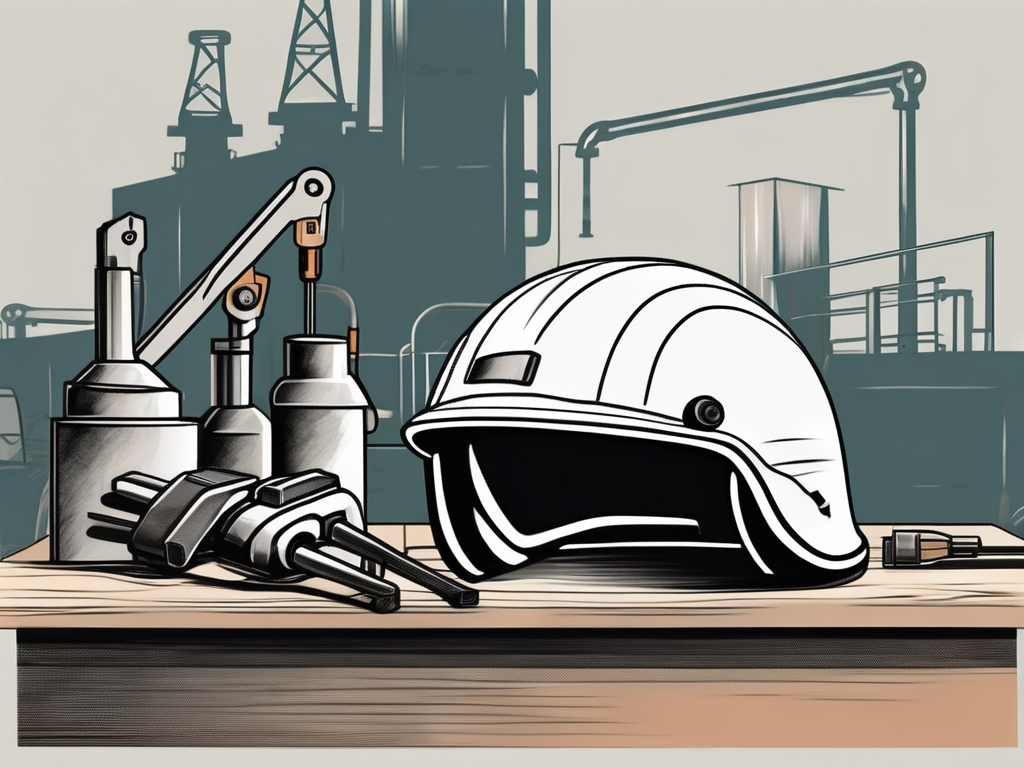What Should an Employee Do If They Don't Have a Labor Union to Join?
In today's workforce, labor unions play a crucial role in advocating for the rights and interests of employees. However, not all workplaces have labor unions, leaving some employees without this collective support system. If you find yourself in such a situation, it's essential to understand the steps you can take to protect and advocate for your rights as an employee.
Understanding the Role of Labor Unions
Labor unions act as the intermediary between employees and employers, negotiating for fair wages, benefits, and working conditions on behalf of their members. They provide a platform for employees to voice their concerns collectively and assert their rights in the workplace.
The Purpose of Labor Unions
The primary purpose of labor unions is to ensure that employees are not taken advantage of and that their rights are protected. Unions work towards achieving fair wages, safe working conditions, job security, and other benefits for their members. By joining a labor union, employees gain access to a collective voice that can influence workplace policies and practices.
Benefits of Being in a Union
Besides the collective bargaining power, labor unions offer a range of benefits to their members. These benefits include legal representation, job security, access to training and development programs, healthcare coverage, retirement plans, and other forms of support and assistance.
One of the key benefits of being in a labor union is the access to legal representation. In cases where an employee faces unfair treatment or discrimination in the workplace, the union can provide legal support and guidance. This ensures that employees have someone to advocate for their rights and help them navigate the complex legal system.
Furthermore, labor unions also play a vital role in providing job security to their members. Through collective bargaining, unions negotiate for employment contracts that include provisions for job protection. This means that unionized employees are less likely to face arbitrary layoffs or dismissals, as the union can challenge such actions on their behalf.
In addition to job security, labor unions offer access to training and development programs. These programs help members enhance their skills and stay updated with the latest industry trends. By investing in their members' professional growth, unions contribute to their long-term employability and career advancement.
Why Some Workplaces Don't Have Labor Unions
While labor unions are prevalent in many industries, some workplaces operate without them. Understanding the reasons for this absence can help shed light on the challenges faced by unrepresented employees.
Factors Influencing the Absence of Unions
Several factors contribute to the lack of labor unions in certain workplaces. Some industries may be less unionized due to the nature of the work or the historical prevalence of anti-union sentiments among management. For example, industries that heavily rely on temporary or seasonal workers, such as agriculture or hospitality, may have lower unionization rates due to the transient nature of employment.
In addition to industry-specific factors, legal restrictions can also play a role in the absence of unions. Some countries have laws that make it difficult for unions to form or operate, imposing strict regulations and requirements that discourage employees from organizing. Employer resistance is another significant factor. Employers may actively discourage unionization efforts by implementing anti-union campaigns, threatening to close down the workplace, or retaliating against employees who support unionization.
Furthermore, the presence of alternative worker organizations can also influence the absence of unions. In some cases, employees may choose to join other types of organizations that advocate for their rights and interests, such as professional associations or employee councils. While these organizations may not have the same collective bargaining power as labor unions, they can still provide a platform for employees to voice their concerns and collaborate with management.
The Impact on Employees
Employees in workplaces without unions may face unique challenges in advancing their rights and interests. Without collective representation, employees may have limited bargaining power, making it difficult to negotiate for better pay, improved benefits, or safer working conditions. They may also lack a formal mechanism for addressing workplace grievances, leaving them vulnerable to unfair treatment or exploitation.
However, all hope is not lost, as there are steps that individual employees can take to make a difference. They can seek support from alternative worker organizations or professional associations that can provide guidance and resources. Employees can also educate themselves about their rights under labor laws and engage in collective action, such as forming informal employee committees or participating in workplace surveys to identify common concerns.
Ultimately, understanding the reasons behind the absence of labor unions in certain workplaces is crucial for both employees and employers. It allows for a more comprehensive understanding of the dynamics at play and opens up opportunities for dialogue and collaboration to improve working conditions and employee well-being.
Steps to Take When There's No Labor Union
While the absence of a labor union may pose challenges, there are proactive steps that an employee can take to advocate for themselves and their co-workers.
Self-Advocacy in the Workplace
One crucial step is to become informed about employment laws and regulations. Understanding your rights as an employee will help you identify any violations and take appropriate action. Documenting any incidents or violations, keeping a record of conversations, and gathering evidence can also strengthen your case if you need to escalate the issue.
Furthermore, it is essential to educate yourself about the history of labor movements and the power of collective action. By understanding the struggles and triumphs of workers who fought for their rights in the past, you can draw inspiration and gain valuable insights into effective strategies for advocating for change.
Additionally, establishing open lines of communication with supervisors and management can help address concerns directly. Express your desires for fair treatment, safe working conditions, and appropriate compensation. Building rapport and trust can lay the groundwork for positive changes.
Building Solidarity Among Co-workers
Employees can also work towards building solidarity and unity among their colleagues. By fostering a sense of community and mutual support, employees can collectively address concerns and advocate for better working conditions. This can involve organizing meetings, forming employee-led committees, or using digital platforms to connect and share experiences.
Moreover, reaching out to other organizations or individuals who share similar goals can amplify your efforts. Collaborating with community groups, non-profit organizations, or even other employee-led movements can provide additional resources and support. By joining forces, you can create a stronger voice and increase the chances of achieving meaningful change.
Legal Rights of Employees Without a Union
Employees without a labor union still possess certain legal rights that can protect them in the workplace. However, it is important to note that these rights may vary depending on your industry and jurisdiction. In order to navigate the complex landscape of employment laws, it is crucial to familiarize yourself with the specific regulations that apply to your situation.
Understanding Employment Laws
One of the key steps in protecting your rights as an employee without a union is to gain a comprehensive understanding of the employment laws that govern your industry and jurisdiction. These laws cover a wide range of areas, including but not limited to minimum wage, overtime pay, workplace safety, discrimination, and harassment.
For instance, if you work in the healthcare industry, you may need to be aware of regulations related to patient privacy and confidentiality. On the other hand, if you are employed in the construction sector, you should familiarize yourself with safety standards and regulations to ensure a secure working environment.
By having a solid grasp of these laws, you will be better equipped to recognize any violations and take appropriate action. This knowledge empowers you to advocate for your rights and ensure that your employer adheres to the legal obligations that govern your workplace.
Reporting Workplace Issues
When faced with workplace issues or violations of your rights, it is crucial to take action and report the problem through the appropriate channels. This demonstrates your commitment to upholding your rights and maintaining a fair and equitable work environment.
Depending on the nature of the issue, you may need to file a complaint with your employer's Human Resources department or contact the relevant government agency responsible for enforcing labor laws. It is essential to provide detailed information and supporting evidence to strengthen your case.
For example, if you believe you have been subjected to workplace discrimination, gathering documentation such as emails, witness statements, or performance reviews can help substantiate your claim. By presenting a well-documented case, you increase the likelihood of a successful resolution.
Remember, reporting workplace issues not only protects your rights but also helps create a safer and more inclusive work environment for your colleagues. By taking a stand against violations, you contribute to the overall improvement of workplace conditions.
Exploring Other Forms of Worker Organizations
While labor unions may not be present in your workplace, there may be alternative worker organizations that you can explore.
Worker Co-operatives and Collectives
A worker co-operative is a business owned and democratically controlled by its employees, who share in the profits and decision-making. Joining or starting a worker co-op can provide a collective voice and allow employees to work in an environment that aligns with their values. Similarly, worker collectives aim to promote democratic decision-making and cooperation among workers.
Professional Associations and Guilds
Depending on your profession or industry, there may be professional associations or guilds that provide support and guidance to workers. These organizations often offer networking opportunities, professional development resources, and advocacy on behalf of their members.
While being in a workplace without a labor union can present challenges, it's important to remember that individual employees still have rights and can take steps to protect themselves and advocate for better conditions. By understanding employment laws, building solidarity among colleagues, and exploring alternative worker organizations, employees can assert their rights and work towards improving their workplace environment.



